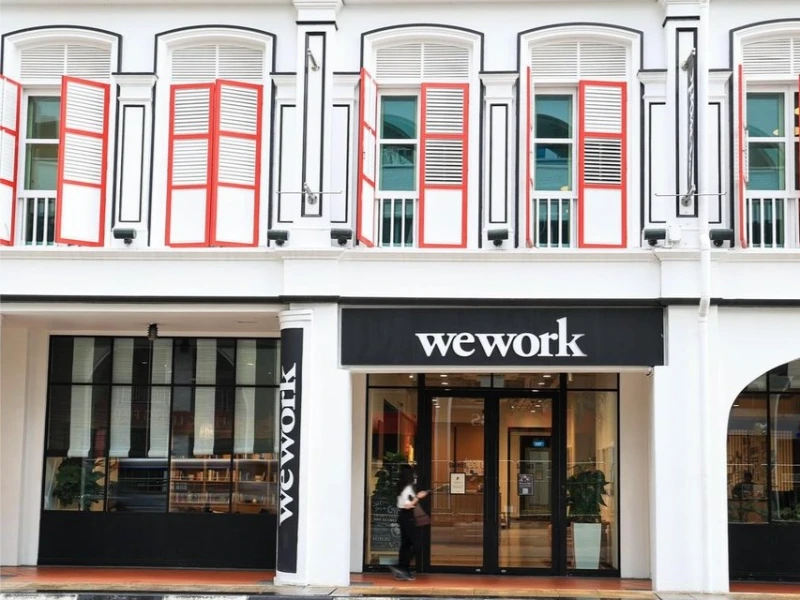- WeWork closed two major sites in 2024 and now operates 12 spaces in key business locations.
- Big companies like Microsoft and GE use WeWork’s flexible offices for hybrid work needs.
WeWork Singapore: Adapting in the heart of Asia’s business hub
WeWork entered Singapore in 2017, launching its first large office at 21 Collyer Quay. This space spans 220,000 square feet over 17 floors and includes a café, gym, and rooftop bar. Initially, WeWork expanded rapidly across the city, with more than 12 locations. However, in 2024, the company decided to close two major sites—Manulife Tower and 83 Clemenceau Avenue. As a result, WeWork now operates 12 spaces in key business districts, concentrating on high-demand areas.
The company offers flexible workspaces that cater to teams of all sizes, including private offices, meeting rooms, and shared desks. All spaces come with high-speed internet, business services, and access to community events. In addition, WeWork’s facilities are home to both small businesses and large corporations, such as Microsoft and GE. Importantly, the company does not require long-term leases; instead, users can choose flexible, short-term contracts.
Also Read: Singapore’s Media Giant: MediaCorp’s evolution in the digital age
Also Read: Singapore exchange: Asia’s multi‑asset market infrastructure
WeWork Singapore: Staying strong in a changing co-working industry
The co-working industry is experiencing rapid growth, though it faces increasing challenges. Many businesses have shifted to hybrid or remote working models, and office rents in Singapore remain high. As a result, companies are seeking flexible office solutions with shorter contracts. In response, operators must provide more than just desks; they need to offer value-added services.
In line with this, WeWork Singapore focuses on large enterprises, which now represent over 40% of global membership. These companies are drawn to modern, all-inclusive office spaces that can be adapted to their needs. Additionally, WeWork continually updates its offerings, using data to improve office layouts and track space usage. The company has also added new tools, such as booking apps and visitor management systems, to enhance the overall experience. Despite global downsizing, WeWork Singapore remains an important part of the company’s strategy in Asia.

